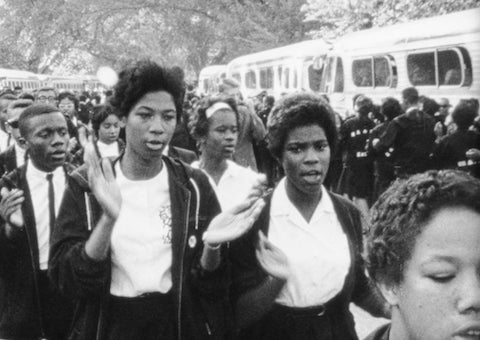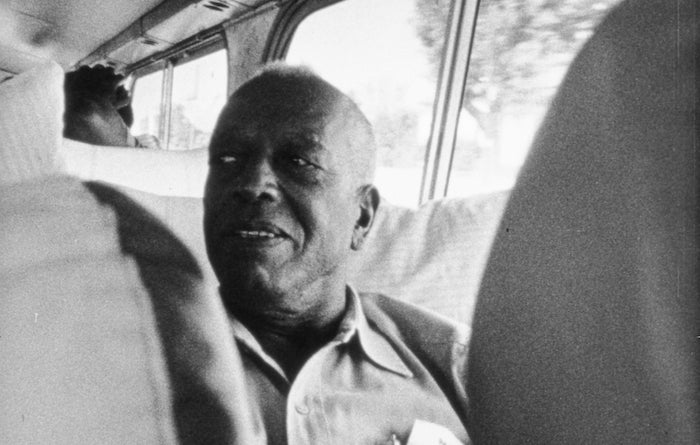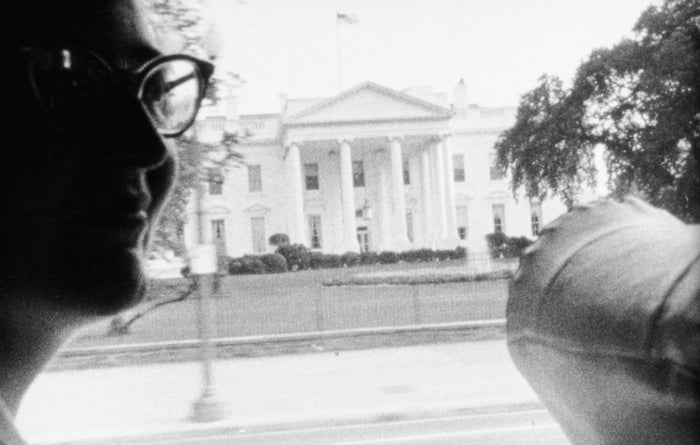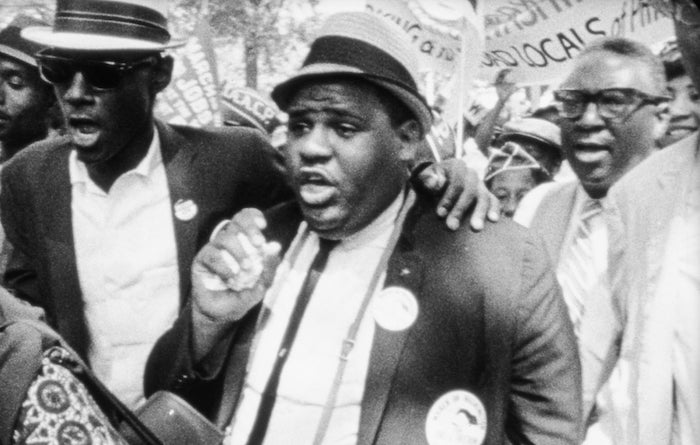
The Bus (1965)
Update: The completed restoration of The Bus will screen May 21, 2022 at the Billy Wilder Theater at the Hammer Museum as part of the UCLA Festival of Preservation.
Of the many defining moments that capture the seismic change of the civil rights movement, the March on Washington for Jobs and Freedom in the Summer of 1963 is among the most influential, representing one of the largest human rights rallies ever recorded in the U.S., drawing over 200,000 participants. The Bus (1965), a documentary film by lifelong activist and Academy Award-winning cinematographer Haskell Wexler (1922-2015), gives agency to the anonymous faces at the March, capturing in intimate detail the story of one small group of individuals that traveled across the country to stand in the shadow of the Washington Monument and demand equality and human rights for African Americans.
Self-funded, produced and photographed by Wexler with a skeleton crew that included filmmakers Nell Cox and Mike Butler, the hour-long vérité documentary begins in San Francisco as an integrated group of 37 people, young and old, embark on a three-day cross-country road trip organized by the Congress of Racial Equality (CORE). Employing a raw, unobtrusive shooting style, Wexler and his 16mm Auricon sync-sound camera are never acknowledged (or seemingly noticed) by his subjects, as charged conversations and small but extraordinary moments of candor are gleaned on the journey: an elderly gentleman calmly details how a white mob tried to kill him the last time he was in D.C., decades earlier; a white bus driver, a self-avowed ally of the cause, worries that the scope of protest may cause white Americans great anxiety; a young African-American man passionately calls out his fellow riders when they show apprehension at an unfamiliar stop, fearing confrontation by angry whites. The collective result of such scenes is a film of major consequence, a record of the everyday faces and voices behind a watershed moment in U.S. history. For film historians, The Bus also serves as a key example of Wexler’s early development as a singular, world-renowned film artist.
The Haskell Wexler collection, which was deposited at UCLA Film & Television Archive by the filmmaker, contains thousands of film elements, including possibly the only surviving materials from The Bus: trims and outtakes of the original picture negative and magnetic track, a 16mm work print and two complete 35mm prints. Thanks to a grant from the National Film Preservation Foundation, the Archive will restore and digitize The Bus for theatrical circulation and free online access, and ensure its long-term preservation.
—Mark Quigley, John H. Mitchell Television Archivist
About the National Film Preservation Foundation
Since 1998 the NFPF has provided preservation resources to 304 organizations in all 50 states, the District of Columbia, and Puerto Rico to help save 2,478 films. NFPF grants are made possible by funds authorized through The Library of Congress Sound Recording and Film Preservation Programs Reauthorization Act of 2016—secured through the leadership of the Library of Congress—and the contributions of public-spirited donors. Learn about the 2019 grant recipients here.



The Archive’s preservation work would not be possible without the support of foundations like the NFPF and individual donors. Learn about how you can make a contribution here.
< Back to the Archive Blog






 Mobile Navigation
Mobile Navigation

